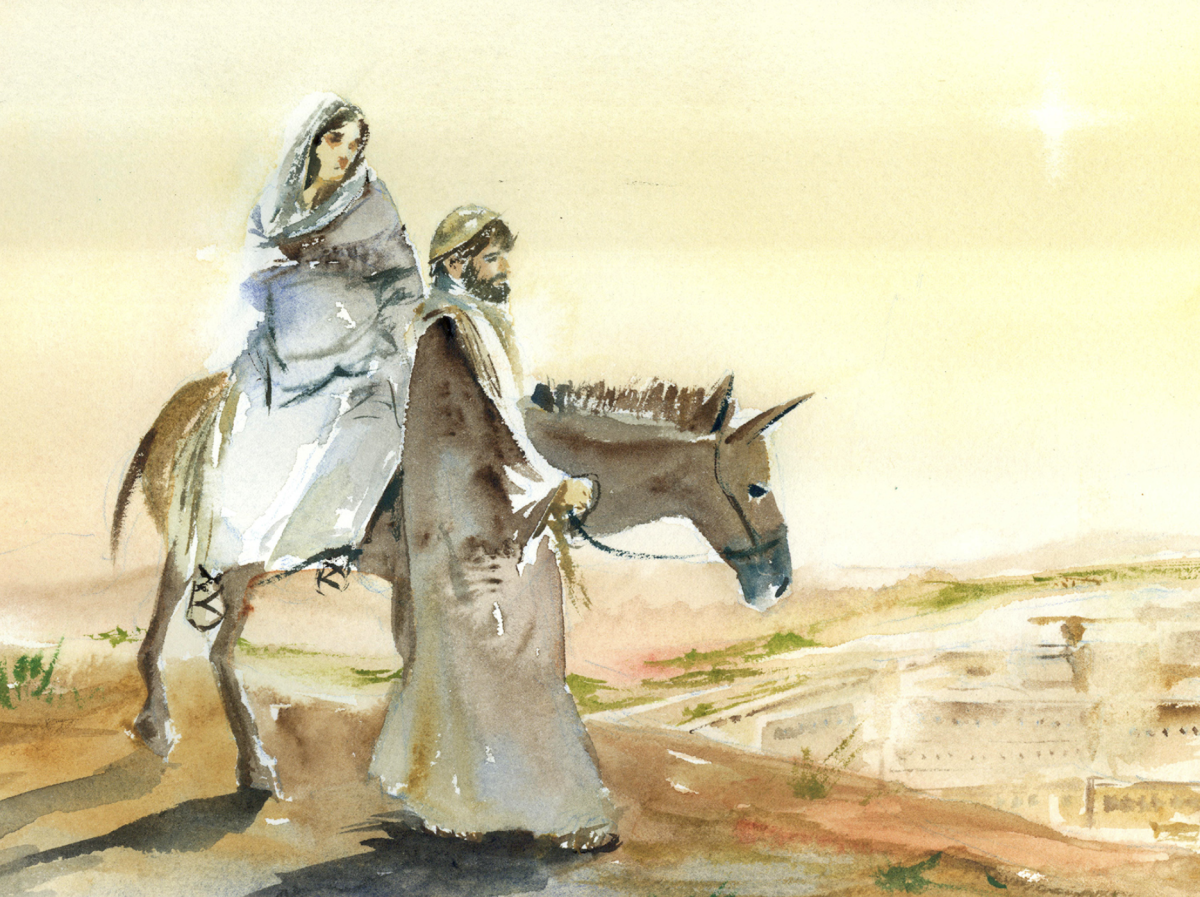If we’d been allowed to choose the mother of this world’s Savior, who would we pick?

Welcome to Adventist Review’s Retro Christmas
In this short series over the holidays, we’ll be bringing you Christmas articles from years past. Why explore vintage Adventist Review? Because the reason for the season never changes. So sit back and join us as we revisit Christmas from the pages of Adventist Review. Perhaps what you read and hear will be nothing new, or maybe, just maybe, these thoughts on the miracle of the Savior coming to us as a baby will ignite or reignite something beautiful in your heart. From our Adventist Review Ministries family to yours, blessings for a beautiful Christmas season.—Enno Müller, news editor
Why would God choose, as the mother of the Messiah, a young insignificant girl from a remote corner of the country with nothing but poverty and obscurity as a recommendation? And why would Joseph, a hardworking older man with no particular credentials, and living in a town with no reputation for religion or learning, be chosen as Mary’s husband and the surrogate father of Jesus?
Had we been given the privilege of selecting the parent for the Savior of the world, there probably would have been some conflicting criteria when our choice and heavens were compared. Would common sense not have dictated that more mature woman (Mary was apparently very young) be chosen as the guardian of Him who’d be the source of our eternal destiny? Wouldn’t we have made sure that she had lived long enough to earn the respect of others? And further, that she was the helpmeet of a wealthy, learned, respected man?
Apparently, God did not see a lot of virtue in knowledge, as such—or wealth or position; nor did He seek the advice of rabbis when it came to choosing the closest and most influential earthly guardian for His Son. God knew that all these had contributed to the loss of eternal favor for the majority of those who have enjoyed them, and that more often than not the poor come because they are hungry, the rich because of lust for gain.
Fortunately, human logic did not feature in the choice God made the future of humanity. Instead, He looked for a humble, teachable, willing young woman to be the mother of our Lord.
When the angel Gabriel walked into the house where Mary lived, she was probably busy washing the dishes for her mother, sweeping the floor, or preparing food for the midday meal. Being a student of Scripture, she may have been singing as she worked — perhaps singing words from the prophet Isaiah: “For to us a child is born, to us a son is given…. And he will be called Wonderful Counselor, Mighty God, Everlasting Father, Prince of Peace” (Isaiah 9:6, NIV). That Mary was faithful, uncomplaining, submissive to the will of her heavenly Father is uncontested.
Faced with a visitor — an angel, no less — she was greatly troubled. She listened as he declared, “Greetings, you who are highly favored! The Lord is with you” (Luke 1:28, NIV). Can’t you just see her backing away, hands pressed into her cheeks, head bowed low, maybe gasping just a bit?
But Gabriel was quick to assure her that all was well: “You have found favor with the Lord” (verse 30, NIV). Humble Mary wasn’t accustomed to messages that exalted her, but she attempted to understand. The angel continued with an even more shocking pronouncement: “You are going to give birth to a son, and you will name Him Jesus. He will be great and called the Son of God. Jesus will be given the throne of Davie and will reign forever” (see verses 31, 32). Gabriel then repeated, “His kingdom will never end” (verse 33, NIV).
Mary, after regaining her composure somewhat, asked just how this could happen, since she was unmarried. Gabriel explained that the Holy Spirit would come upon her with power.
Humble and trusting, Mary acquiesced, telling the Lord, and herself, that she was His servant. Even though she’d been exalted above all women, there was no triumphal skipping around the room proclaiming, “Wonderful news! I’ve been chosen as the mother of a king!” Instead, she began preparations to visit her elderly cousin Elizabeth (also with child), perhaps walking the entire four-day journey.
During the time away, she could not have closed her mind to considering just how she would be received when she returned to Nazareth. How would Joseph react? What would her mother say? How would the rabbis respond? Social ostracism, she knew, would be the least punishment. Stoning for adultery would be the worst.
Although we often case this story in a peaceful, homey setting at Christmastime, Mary would learn that “there’s a tremendous price to be paid by those who are highly favored of God.”*
The humbling, self-effacing, I’ll-do-what-You-want-me-to-do attributes of Joseph and Mary are worth considering as attributes for adoption into our lives. God took a small nothing of a girl and used her to birth the assurance of our salvation. We too have been chosen to cradle the King of kings and Lord of lords — “Christ in us, the hope of glory” (see Colossians 1:27). Chosen of God — the best gift we’ll ever receive.
This article originally appeared in Adventist Review in December 2000.
_____________________________
* Bruce Larson, Luke, Communicator’s Commentary Series (Dallas: Word, 1983), 3:35.








